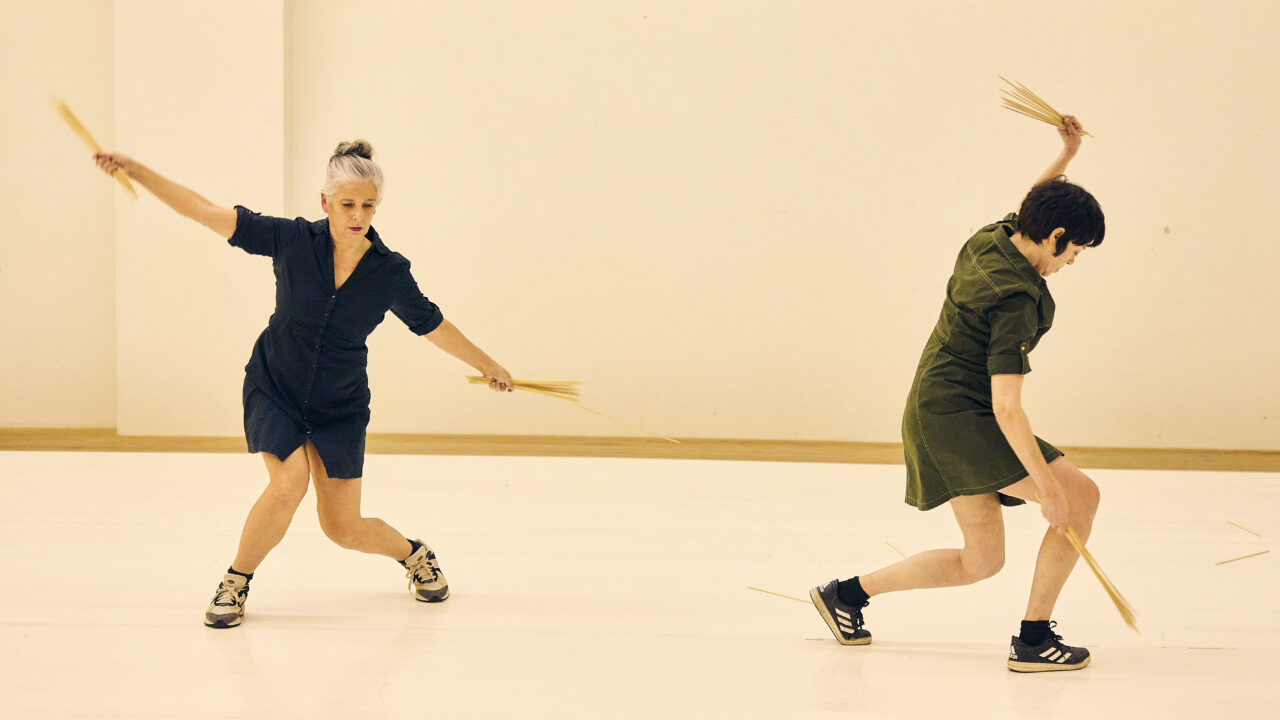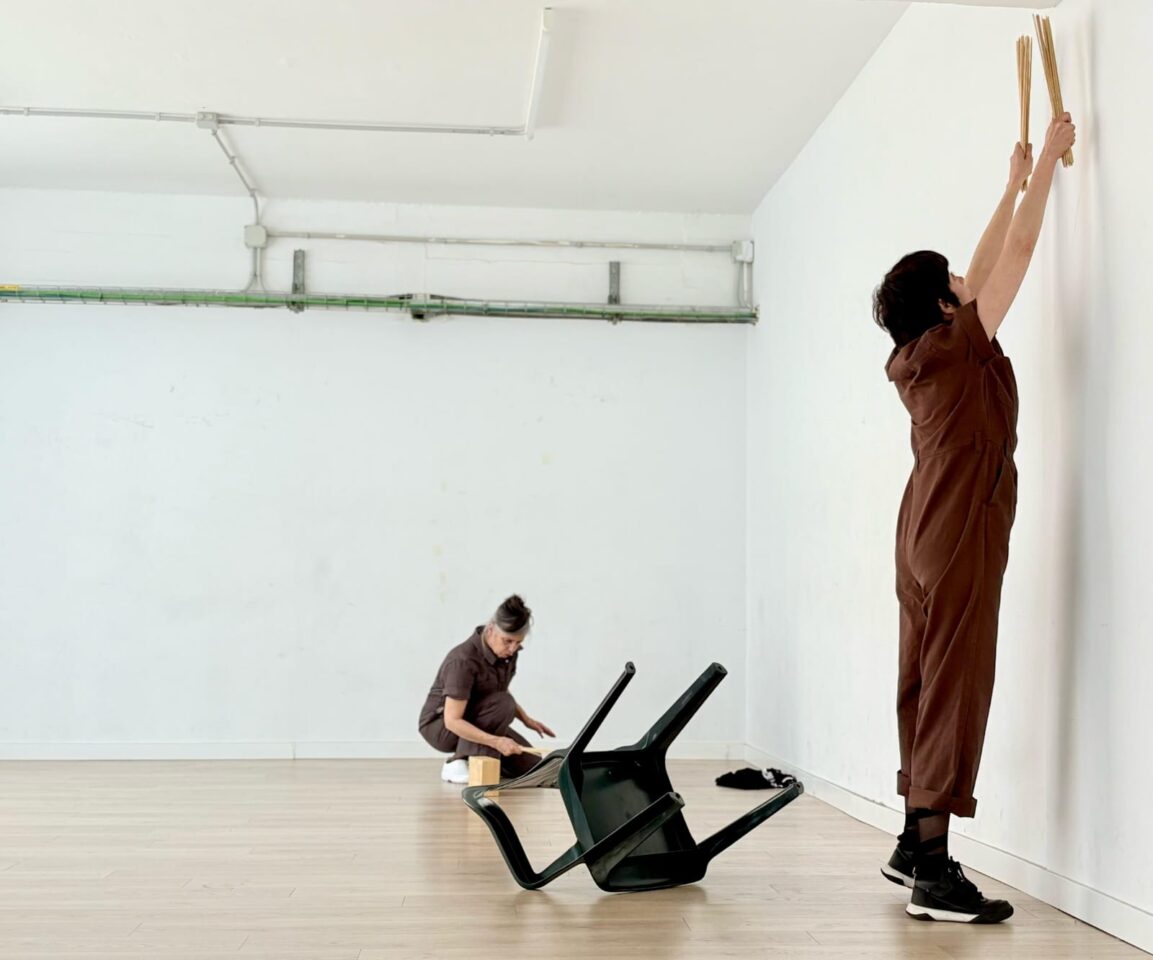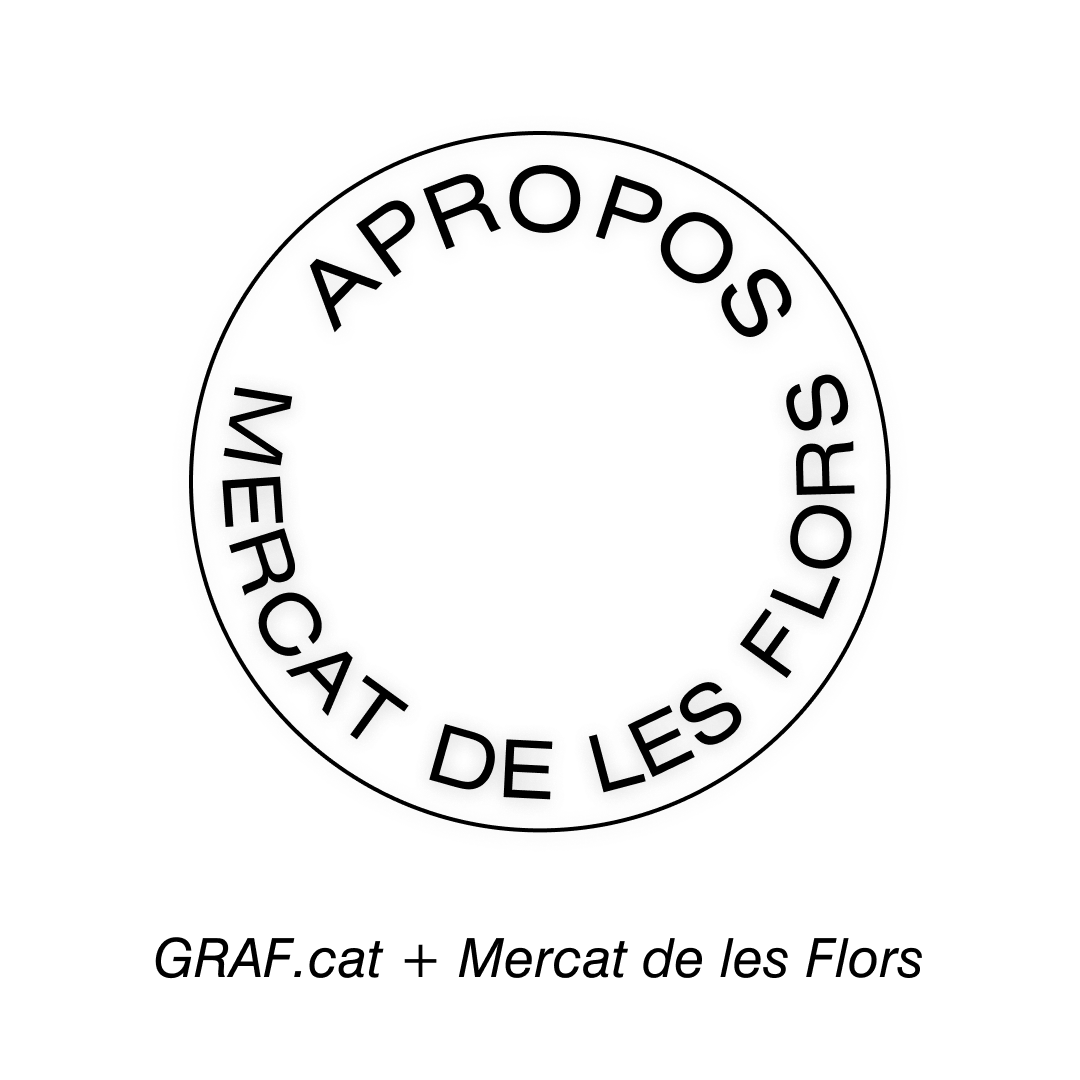According to the RAE, “Vaudeville: a frivolous, light and spicy comedy, with a plot based on intrigue and misunderstanding, which may include musical numbers.” In this case: poetry, polysemy, care, brevity, body, dance, seas, love, mother or death are some of the concepts that Mónica Muntaner and Rosa Muñoz have developed in Coplas i Haikus de mares i amors, a contemporary dance piece -in the style of current vaudeville, as defined by the authors themselves- which will be presented from 2nd to 4th of May at the Mercat de les Flors (Sala PB). In this Apropos we continue celebrating the friendship between GRAF and the Mercat de les Flors, taking the opportunity to converse with the protagonists of this work about the subversion of polysemy as an artistic act, humour as a tool for performative and bodily expression, or female care turned into a tribute.

La Caldera / Càpsula de Creació en Cru #77 – Mònica Muntaner i Rosa Muñoz ©Tristán Pérez-Martín
The vaudeville of haikus, copla and care
Rosa Muñoz: We were interested in the haiku as a poetic form. We liked it because it suggests more than it explains, and I think this has a lot to do with the way we work. The interest in copla, on the other hand, is musical: initially, we established that the piece would be more closely related to a concert, as we wanted to sing, create rhythms, and have the voice present. However, somehow, copla is part of our lives through our relationship with our mothers and the era we have lived through, and through its use we tell stories that are somewhat theatrical.
Mónica Muntaner: There’s also a wordplay here. When we say “mothers,” we are actually referring to mares (mothers) in Catalan. What happens is that we play with this word, which can also mean “seas” in Spanish. But in reality, yes, it’s a resource that creates a poetic image: they can be mares (mothers), but in reality, they are our mothers.
Rosa Muñoz: We have always started with the idea of paying tribute to our mothers and, at the same time, taking care of them. Now we are at a point where they are very old, and we are taking care of them. That’s why “Coplas i Haikus de mares i amors” is about mothers, the love for them, and love in general for the people we care about. Death also plays a big part, because they are very old and we are caring for them. For me, sensitive and emotional topics come into play here, and the copla and the haiku help us tell all of this.
Working as a duo
Mónica Muntaner: We both come from the same generation, from a time when dance began to emerge in Barcelona. A generation that is now in a different place in terms of new scenic proposals. This, in some way, connects us because we’ve known each other for a long time. Rosa and I are part of the same sector, and we did things related not only to our personal projects, but to the structures in which we fostered dance and creation. But we are also friends. Both she and I have quite a similar universe that we only work on when we are together. In other works, our language is different. This new meeting is a continuation of the way of working we found in our first project (“Quatre octaves i mitja”), which has a lot to do with writing and voice. We use the voice as an additional member of our body, as if it were a leg, as if it were another part that extends, and with that, we also understand dance in a very open way, where word, gesture, movement, action, and being are all part of that language.
The power of humour
Rosa Muñoz: Our works are very biographical: we talk about what concerns us and what happens to us. Depending on the moment in life we are in, we talk more about one thing or another, but always with that emotional component. We are very connected to what we feel, and also with what we like and what gives us pleasure. Although there are always things that also cause us pain (because there are many), we try to find the sense of humour. There is always this contrast, something that can hurt us, but we try to approach it with a friendly or humorous perspective to take the edge off. That gives us an impulse to enjoy and be happier in this world.

At the Mercat de les Flors
Mónica Muntaner: I believe the bond with the Mercat de les Flors is a generational one, a bond of mutual knowledge, respect, and admiration. In this case, it has happened that our proposal fits into the programme of Ángels Margarit, the director of the Mercat, and she has been able to include us. This year she has found a space to programme pieces that talk about motherhood. On the other hand, the communication and dialogue are very comfortable and flexible. This is the first time we are being programmed as artists, from La Poderosa –the centre I run with Bea Fernández– my relationship with Ángels is different. And you, Rosa, also have a strong bond with Ángels.
Rosa Muñoz: Yes, with the company Rara Avis. There, Ángels programmed two shows of San Vito. There’s something affectionate between us in this case. In the case of “Coplas i Haikus de mares i amors”, she also wanted to programme us because she was planning a cycle of work with voice and body, and it worked out for her to include us.
Looking to the future
Mónica Muntaner: I speak for myself. I hope the public comes, I hope to communicate, I hope it to be a good experience. But it’s not that I think that after this many more things will happen because the scene is complicated: making a living from performances is very difficult. And, in some way, neither Rosa nor I live only from our artistic side. I mean that, apart from creating our projects, we have other things that help us survive. We don’t expect something drastically different to happen, but you never know.
Rosa Muñoz: I think it’s important that we meet and present a piece like this. A work with a very personal language. Also, with the age we are, and in my case, coming from a time without dancing much, I think it’s a moment of particular emotion. I’m a bit curious to see how people react, what this show provokes, which, honestly, we’ve worked hard on, and we are quite satisfied with the result. I think it will go very well, and we hope a lot of people come, that they enjoy it and that they like it, of course.
—
With APROPOS, we approach the Catalan artistic ecosystem to report what is happening in the here and now. In this one, we continue collaborating with the Mercat de les Flors in communicating the programme for the 2025 May season.


